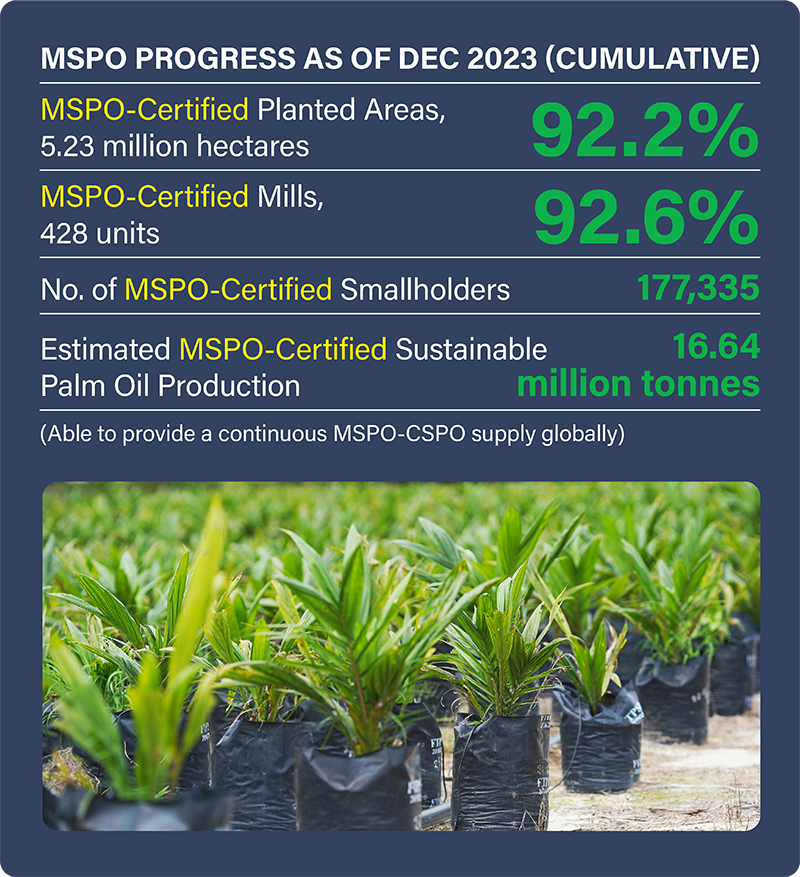Frequently Asked Questions (FAQ)
Your go-to guide for understanding the palm oil industry and gaining insights into sustainability, environmental impact, and industry practices.
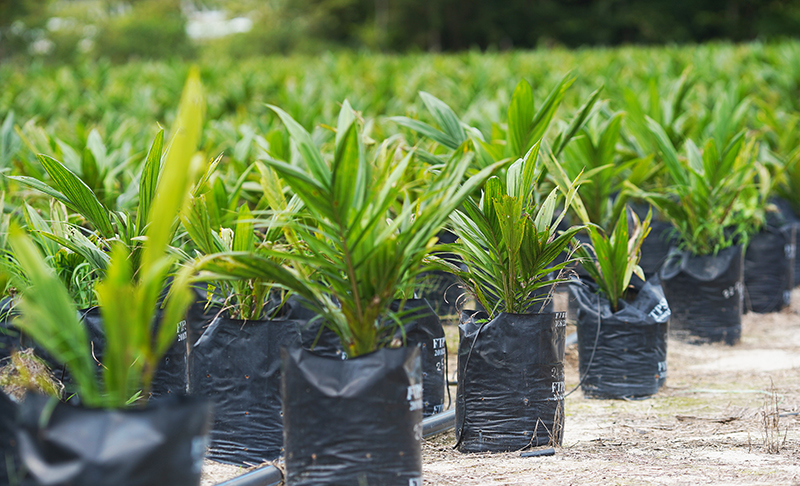
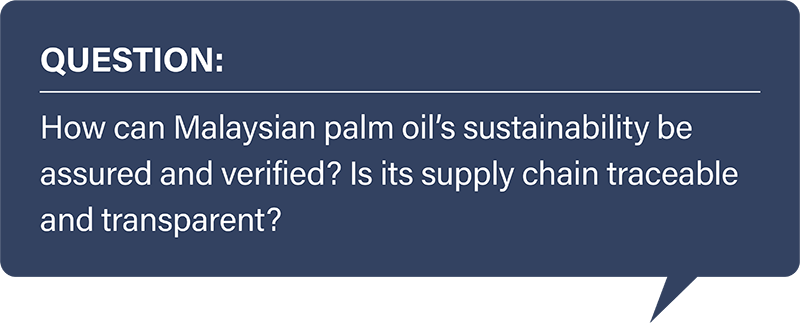
Malaysian palm oil is subjected to a mandatory sustainability certification scheme, the Malaysian Sustainable Palm Oil (MSPO), to ensure sustainable production. MSPO-certified palm oil and its supply chain are fully traceable and transparent, as they can be verified through the scheme's MSPO Trace application, which stores its geo-location and certification information. This is now supported by MPOB's recently launched Sawit Intelligent Management System (SIMS), which contains additional traceability and transaction details. Both platforms now enable manufacturers, retailers and consumers alike to verify the traceability and the source of origins for MSPO-certified palm oil, and will be essential in meeting product traceability requirements found in recent global sustainability legislation, such as the EU's Deforestation Regulation (EUDR).
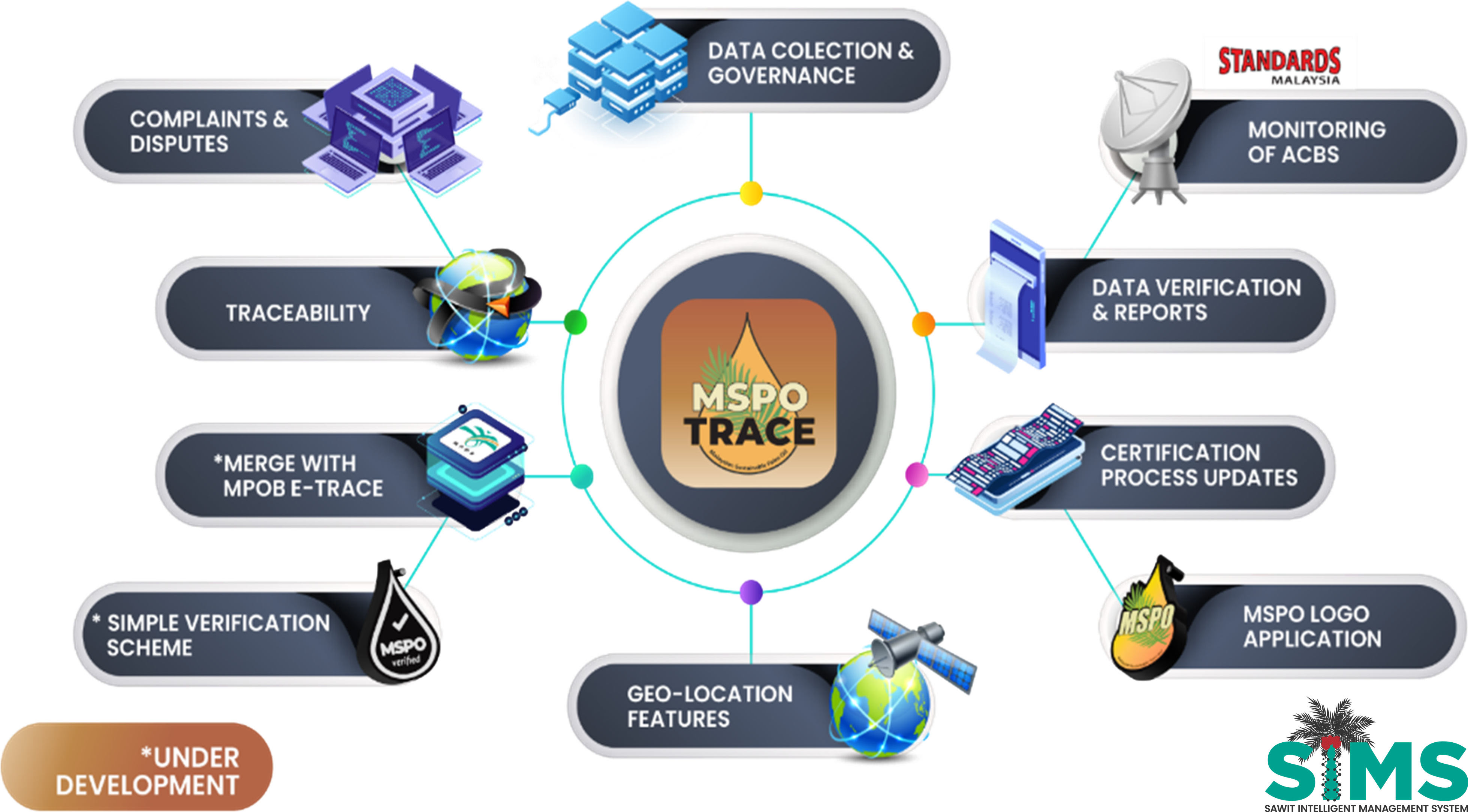
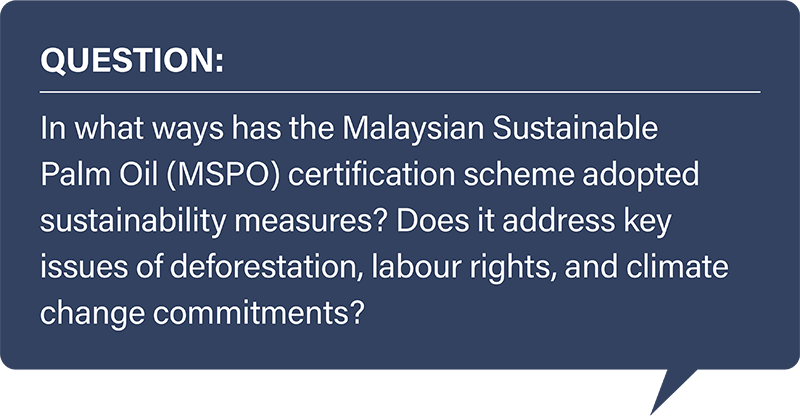
The Malaysian Sustainable Palm Oil (MSPO) certification scheme is an official national scheme of Malaysia that aims to certify oil palm plantations, independent and organised smallholders, as well as palm oil processing facilities per the strict criteria set by the MSPO. The MSPO certification scheme, particularly its latest version, MS 2530:2022, is pivotal in addressing sustainable development issues. With a stringent no-deforestation cut-off date of 31 December 2019, it has established an effective foundation for responsible land use. Beyond this, MS 2530:2022 incorporates critical sustainability measures:
- High Conservation Value (HCV) Assessment
- Greenhouse Gas (GHG) Calculator
- ILO Forced Labour Indicators and Decent Work Agenda
- Social Impact Assessment (SIA)
- Triangular Employment
- Ethical Conduct and Anti-Bribery
- Mandatory corporate accountability
- Compliance for palm oil dealers





